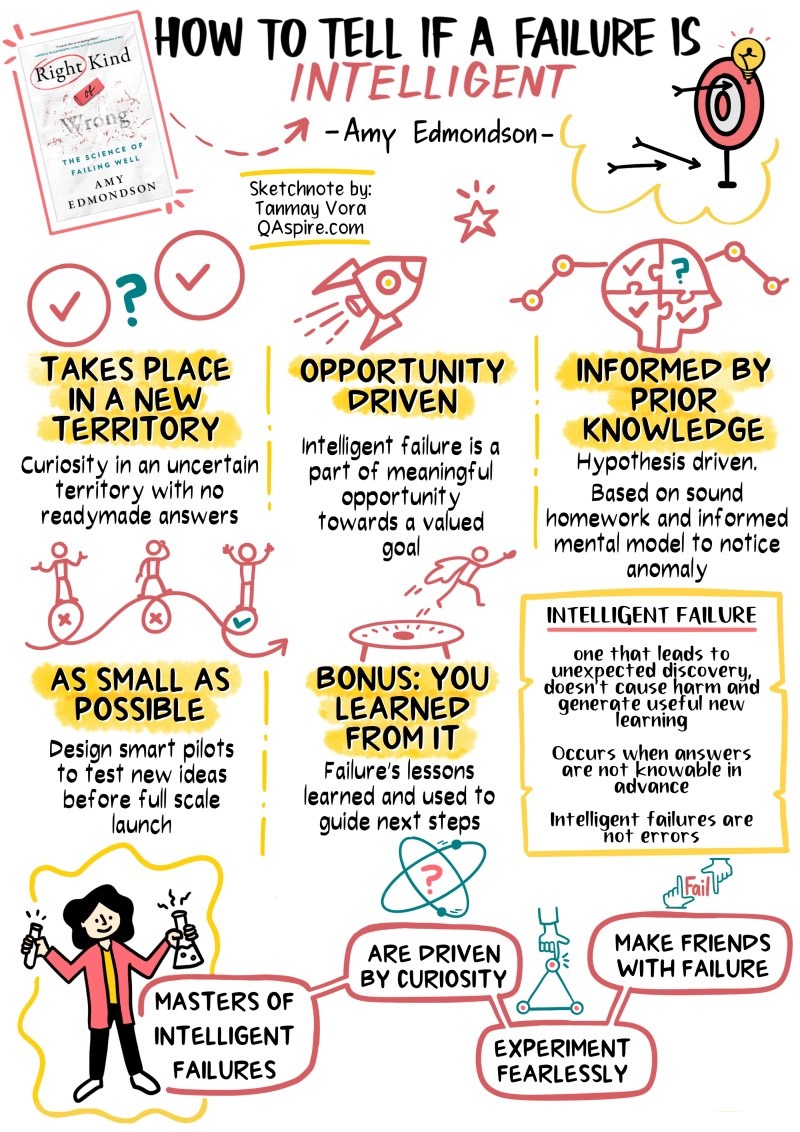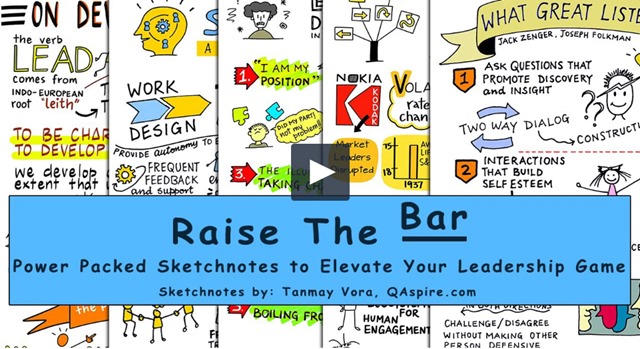What Makes a Failure Intelligent
Not all failures are intelligent. Here's a quick visual guide on how to identify intelligent failures, based on Amy Edmondson's new book "The Right Kind of Wrong"
Tanmay Vora
In 2019, India’s ambitious mission to land on Moon failed after India’s space agency ISRO lost contact with the lander which crash landed. In 2023, India reattempted to land on Moon’s South Pole with Chandrayaan-3 mission and made history by being the first country to successfully land on Lunar South Pole at a fraction of what other countries spend on space exploration. The total cost of India’s successful Moon mission was $75M whereas cost of making movies like Interstellar is reported to be $165M.
ISRO can be seen as a failure in 2019 but that failure (and all the lessons learned from it) enabled success in 2023.
Failures in new territories that pave the way for eventual success are what Amy Edmondson describes as “Intelligent Failures” in her newly released book “The Right Kind of Wrong – The Science of Failing Well”. The book is a fantastic exploration on the topic of failure that shines light on Amy’s three decades of studying the psychology of failures.
How are Intelligent Failures Different?
According to Amy, Basic failures are the ones caused by carelessness or ignorance and a Complex Failure is often caused by a combination of multiple systemic factors, none of which would have caused failure on its own. With both Basic and Complex failures, the chances of failures can be minimized through focus, attention, reviews and catching/correcting mistakes before it’s too late. There has been a lot of buzz in entrepreneurial world about failing fast and failing forward but most of these recommendations or narratives do not capture the nuance that failures can be multifaceted. We cannot afford to fail (or make errors) where we could have avoided failure and there may be little to gain from celebrating such failures. Celebrating failures without a nuanced understanding can make us complacent and careless. (Read my 2015 post on this here.)
Intelligent failures happen in uncharted territories – areas like space explorations, new drug discoveries, building a disruptive new product etc. where there are no readymade answers. Amy says that if you are not regularly failing intelligently, you may not be operating at your full potential.
What Makes a Failure Intelligent?
The book does a brilliant job at helping us identify intelligent failures. Here are four (and a bonus) criteria and a few quotes from each to guide you when you assess a failure
New Territory
“For a failure to qualify as intelligent, no recipe, blueprint, or instruction guide can have existed to solve the problem or precisely map the new ground in advance.”
Meaningful Opportunity
“An intelligent failure occurs as a part of what you believe is a meaningful opportunity toward a valued goal.
Do Your Homework
“Intelligent failures begin with preparation. The classic intelligent failure is hypothesis driven.”
“Only with an informed mental model about what should happen are you able to observe an anomaly.”
Keep it Small
“Another best practice for keeping failure as small as possible is the design of smart pilots to test new ideas before the full-scale launch of an innovation.”
Bonus: You Learned From It
“Think carefully about what went wrong and what factors might have caused it. Suggest what to try next. Understand and accept your own contribution to the failure.”
Here is a quick sketchnote summary of “How to Tell if a Failure is Intelligent”. While I am still reading the book, the amount of insight and stories that Amy Edmondson has captured in this book is so enriching. I strongly recommend reading this scientific, informed and insightful take on “The Right Kind of Wrong”
Updated: Visual Leadership Pack of 70+ HD Sketchnotes
If you liked the sketchnote summary above, check out the Visual Leadership Pack of HD Sketchnotes – a compilation of high-resolution sketchnotes with 68+ powerful (and timeless) ideas to elevate your leadership and learning game.


